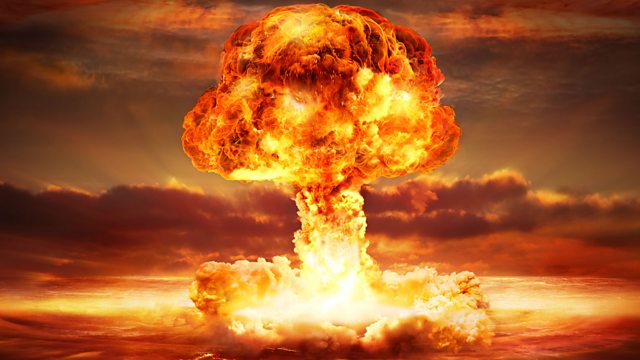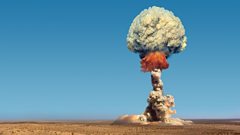How Could Humanity Become Extinct?
Nuclear weapons and mega asteroids: what would the aftermath look like? CrowdScience explores past extinction events and future dystopias.
Nuclear weapons and mega asteroids: what would the aftermath look like? CrowdScience explores past extinction events and future dystopias.
In a past episode, CrowdScience headed to Denmark to find out whether humans could go the way of the dinosaurs – mass extinction triggered by a large asteroid impact 66 million years ago. Although no killer rocks are on route to Earth any time soon, we do not have to look far for other dystopias.
“Do we have enough nuclear weapons to destroy the world?”, listener Ronald from Uganda asks CrowdScience. It turns out there is a web app which can help answer this question. Together with its maker nuclear historian Alex Wellerstein, presenter Anand Jagatia tests hypothetical nuclear disaster scenarios and uncovers the nature of nuclear destruction in interviewees with climate scientist Alan Robock.
Do you have a question we can turn into a programme? Email us at crowdscience@bbc.co.uk
Presenter: Anand Jagatia
Producer: Louisa Field
(Image: Explosion of a nuclear bomb Credit: Getty Images)
Last on
More episodes
Previous
Clip
-
![]()
What would nuclear apocalypse look like?
Duration: 01:40
Broadcasts
- Fri 8 Sep 2017 19:32GMT���˿��� World Service except News Internet
- Sat 9 Sep 2017 22:32GMT���˿��� World Service East and Southern Africa & West and Central Africa only
- Sat 9 Sep 2017 23:32GMT���˿��� World Service except Americas and the Caribbean, East and Southern Africa, News Internet & West and Central Africa
- Mon 11 Sep 2017 02:32GMT���˿��� World Service Americas and the Caribbean
- Mon 11 Sep 2017 04:32GMT���˿��� World Service except Americas and the Caribbean, East and Southern Africa, News Internet & West and Central Africa
- Mon 11 Sep 2017 06:32GMT���˿��� World Service East and Southern Africa
- Mon 11 Sep 2017 13:32GMT���˿��� World Service Australasia
Podcast
-
![]()
CrowdScience
Answering your questions about life, Earth and the universe



